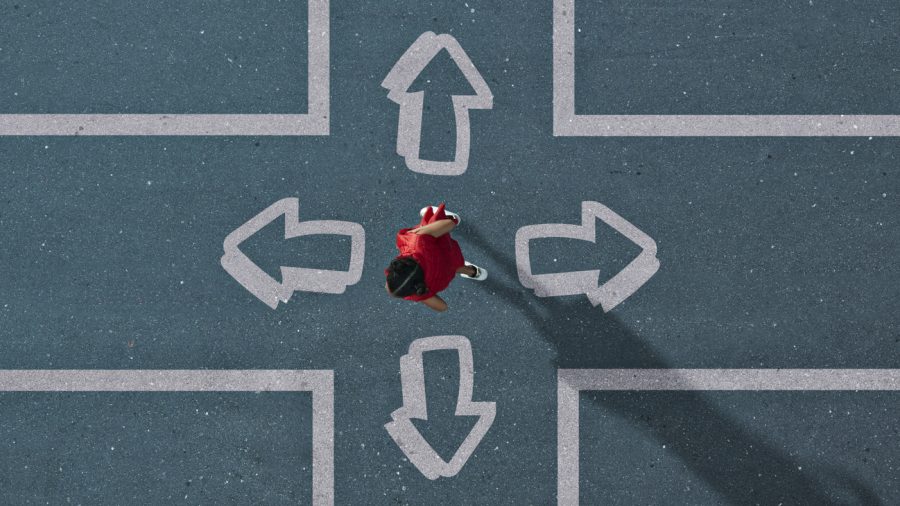The Paradox of Choice
A young girl chooses from among arrows pointed in four different directions.
January 24, 2023
If one were to log into Netflix alone, they would be greeted with over 6,000 options to view, and yet, they still might struggle to land on something to watch.
As society enters a fully digital age, the negative psychological effects of choice overload are increasing. As of now, there are currently over 128 different types of social media platforms and thousands of different media for viewing, however, consumers can only perceive seven different choices at once. The question becomes – is too much choice a good thing?
The availability of choice creates a form of ‘paradox’ where people become indecisive and regretful. Researchers Sheena Iyenger and Barry Schwartz note that “although people tend to want as many options as possible … when it comes to actually making a decision from all these options, people can become paralyzed – and avoid making choices altogether.” The article titled “We’re increasingly bombarded with choices – and it’s stressing us out” expresses that those who eventually do make a decision are often regretful of what they missed out on and are usually unhappy with their choice.
The researchers observed the physical effects of choice overload by asking their peers to make decisions. Their results were fascinating, showing that when asked to make a decision, a person’s heart rate increased and their arteries constricted, signs that they felt less confident about their decision. The repeated constriction of the heart can have long-lasting effects, including heart disease and hypertension – all from making too many decisions.
When someone is in the process of making a decision, they are weighing thousands of different possibilities all at once. These numerous amounts of different possibilities create unnecessary self-made pressure. The debate of potential outcomes contributes to cognitive dissonance. Cognitive dissonance is a form of psychological stress created when one participates in actions that are contradictory. Making tough decisions leads to this psychological stress as the options people are comparing are often contradictory and/or lead to different outcomes. This stress results in less motivation to make a decision. Additionally, the cognitive dissonance that people suffer from often results in someone making a decision that will leave them less satisfied.
The general public seems to prefer a wider variety of options, but when it comes to the psychological effects, less is more. Even at St. Luke’s, everyday decisions seem monumental, from figuring out where to sit at lunch, what to eat, and even what classes to pick for the following year. These daily decisions have a huge impact on the physical and mental well-being of students here even without them knowing.




